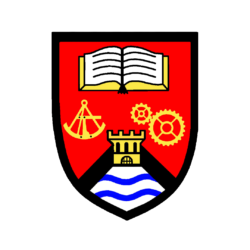Faculty of:
Head of Faculty:
Mr D. Bahier
Deputy Head of Faculty:
- Ms N. Robinson
Members of staff:
- Ms J. McGeoch
- Ms S. El Messaoudi
- Ms A. Eynard – Machet
(+ 2 PGCE students)
The MFL vision
The MFL faculty is committed to teach languages in an engaging way, allowing our pupils to enjoy their learning while developing an interest in different languages and cultures.
The aim of our MFL broad and ambitious curriculum and of our pedagogy is for our learners to become independent, confident and successful linguists in examinations, in further studies and in life more generally.
Pedagogy and sequencing
The pedagogy used in our MFL faculty is based on the Presentation – Practice – Produce lesson structure with an inductive approach so learners have to figure out linguistic patterns themselves.
We view the 5 years from year 7 to year 11 as a five-year course. Our lessons help learners to establish good pronunciation and spelling, to build key language skills at Key Stage 3 and to reinforce and further develop them at Key Stage 4 for GCSE success using a range of resources and teaching strategies (e.g. pair work, language games, independent learning tasks, whole class practice activities, regular homework tasks…).
The curriculum and our lessons in MFL are carefully planned, sequenced and presented so that the new knowledge and skills build on what has been learnt previously and towards clear defined end points.
From year 7, our ambitious curriculum, a systematic, strong and logical progression and focus on key language skills ensure that all pupils know more language and gain the confidence to use it independently. We also prepare our pupils from as soon as year 7 for the sort of tasks which they will face at GCSE; this helps pupils to become familiar and more confident with the tasks they will need to deal with independently as they reach Key Stage 4.
At the same time, we ensure that our lessons provide rich cultural content (inclusion of authentic materials such as poems and songs, cultural quizzes, videos); this strong cultural focus helps pupils to build knowledge of the countries where the language they study is spoken.
We make sure that the different required components (grammar, vocabulary, core structures, linguistic and exam skills) are thoroughly delivered and differentiated to allow pupils to meet the end points.
Learning to remember
Individual lessons build from a simple starter, to the introduction of new language, supported practice and then to more open-ended tasks.
Core language and transferable skills are then revised and extended in the same module, from one module to the next and over the 5 years.
This “recycling” and the systematic progression in our Schemes of Works underpinning our lessons at Key Stage 3 and Key Stage 4 ensure that our pupils are always building on knowledge and skills they have been taught while being given the opportunities to apply their existing core knowledge and skills to new contexts. It also helps them to develop confidence and independence and embed knowledge and skills into long-term memory so that they know more, can do more and can use the language more fluently.
The following lesson features further support transfer of knowledge to long-term memory:
* Focus on core transferable skills (listening, reading, speaking, writing) and language (e.g. opinions, intensifiers, structures, connectives…)
* Use of “desirable difficulties” in our lessons
* Implicit studying of grammar (including seed-planting, e.g. teaching “je suis absent, il est absent” before teaching etre) before more explicit explanations
* Spacing and retrieval practice – repeatedly recycling of prior knowledge knowledge (vocabulary, grammar and key structures) and revisiting topics over several lessons and over a longer period of time, “little and often” (e.g. flip learning HW then revisiting the vocab in lessons, practising topics during the module and again at the end of the module, vocabulary and grammar revisited in texts/recordings/tasks from one module to the next, spaced revision in yr11)
* Speaking routines especially at KS3 (e.g. speaking routine about tenses in yr8+9, cumulative speaking routines in yr7)
* Retrieval starters (e.g. starters to revise last lesson but also last week/month/module – retrieval grids)
* Drilling games
* Low stakes quizzes (e.g. parallel translation to test vocab learning in context, retrieval quizzes based on different topics not just the recent one, vocab challenge and tense torture in yr10+11)
* Revision and practice homework tasks
* Use of stage grids to revise for speaking and writing prior to summative assessments
* Regular practice of key skills and strategies (e.g. listening, reading, translation, photo description)
* Cumulative summative assessments.
The MFL curriculum
KS4 Curriculum

